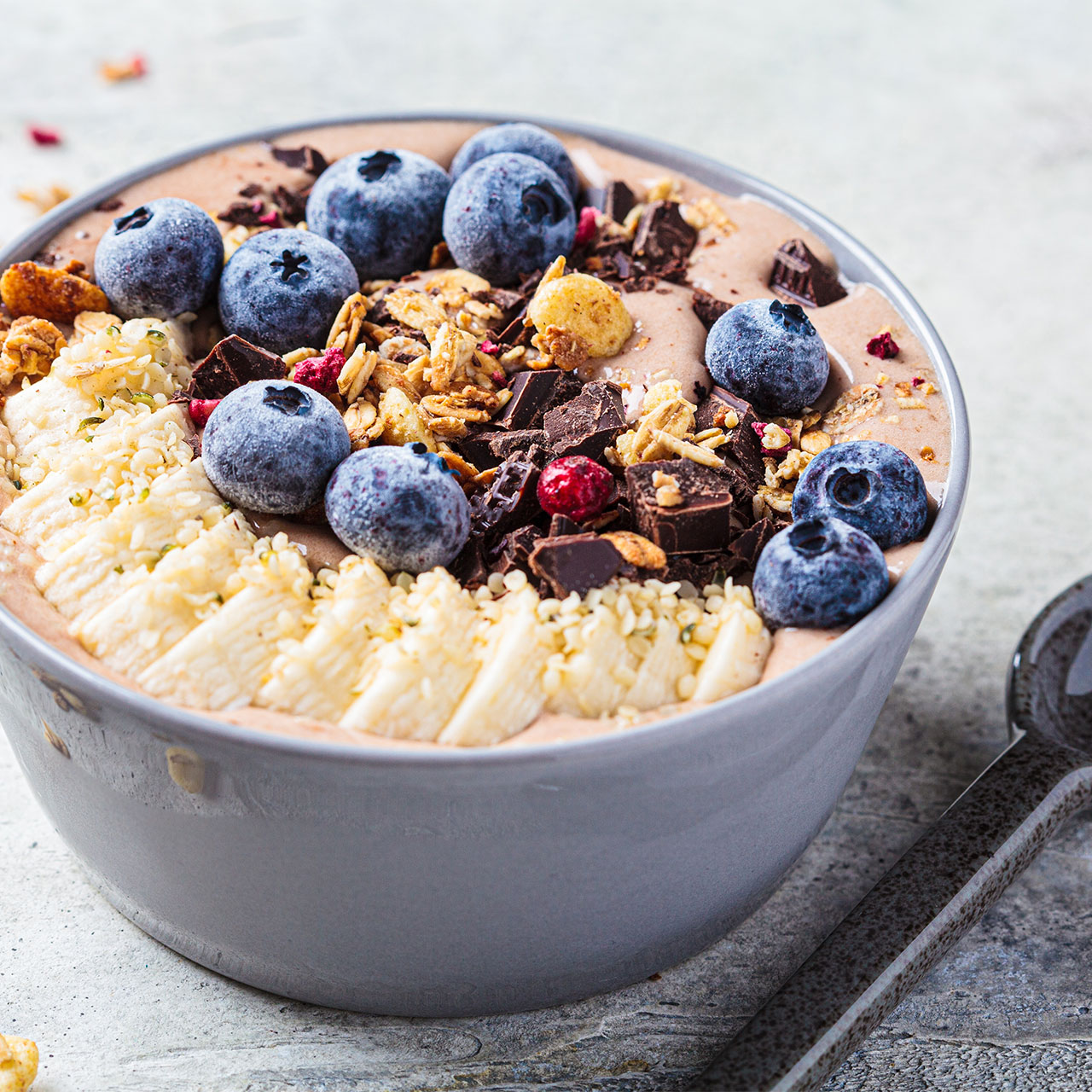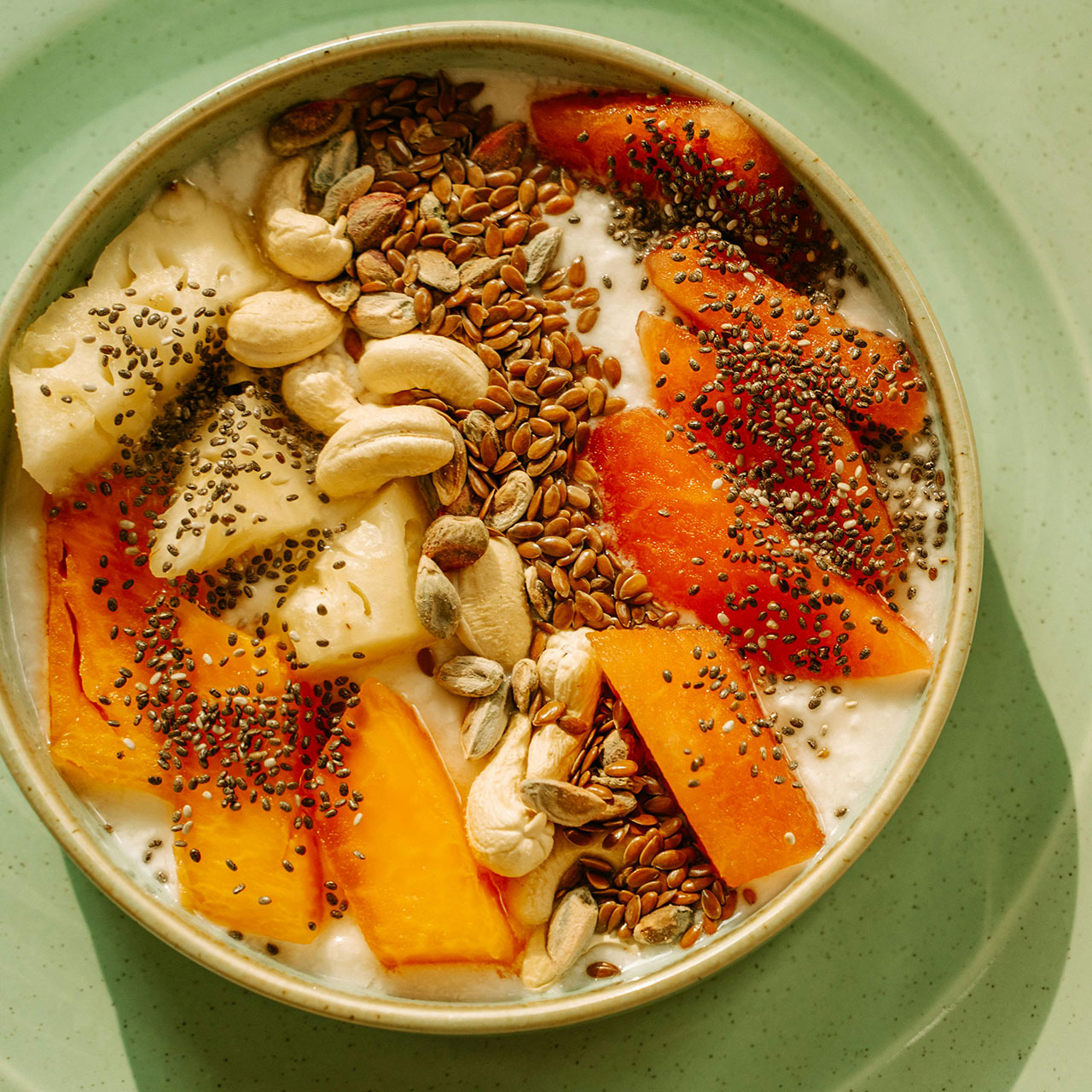As we age, maintaining optimal digestive and heart health becomes increasingly important for overall well-being. One key dietary component that plays a crucial role in promoting these aspects is fiber. High fiber foods are rich in nutrients, vitamins, and minerals essential for bodily functions. Moreover, a diet high in fiber is associated with a lower risk of developing heart disease, the leading cause of death worldwide.
We spoke with nutrition expert Jesse Feder, RDN, CPT; Joanna Wen, certified weight loss coach and founder of Spices & Greens; Sophia Turner, a registered dietitian, fitness coach, and co-founder of Slimetc; Sheri Berger, RDN, CDCES; and registered dietitian and nutritionist Susan Schachter, MSRDN, co-founder of 120/Life, to learn about seven high-fiber foods to eat over 40 for better digestion and heart health. They revealed that oats, nuts, lentils, barley, avocado, spinach, and chia seeds are the ones to eat more of.

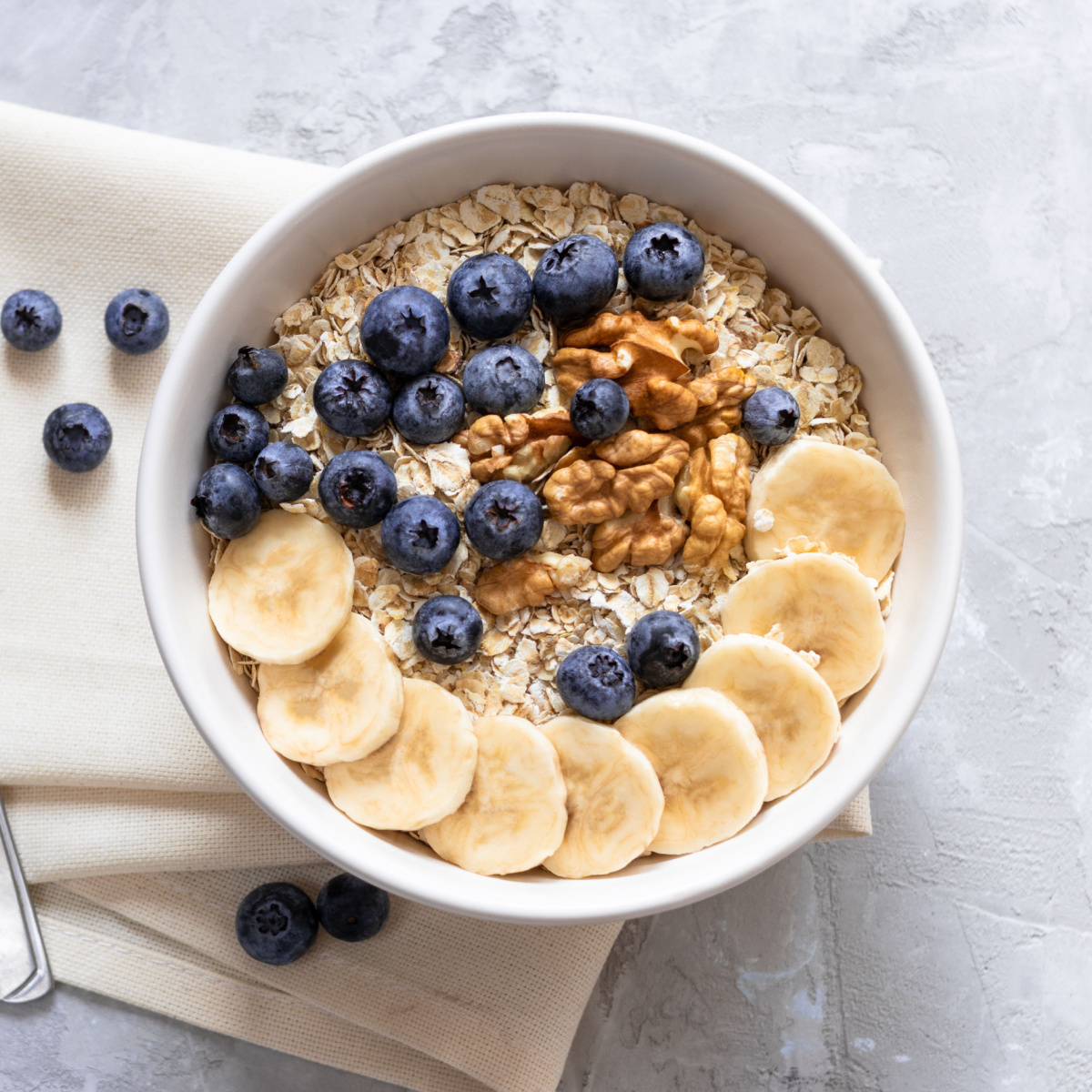
Oats
Rich in soluble fiber, oats help lower LDL cholesterol levels, thereby reducing the risk of heart disease, a critical concern for aging populations. Additionally, the soluble fiber in oats forms a gel-like substance in the digestive tract, which aids in regulating bowel movements and alleviating constipation, common issues as people age.
"Oats are a great source of soluble fiber and are known to be helpful in reducing cholesterol levels," Feder says. "The high amount of soluble fiber in oats can help absorb cholesterol from the GI tract and prevent clogged arteries over time." Also, oats happen to be one of the best complex carbs to eat to help keep blood sugar levels in control.
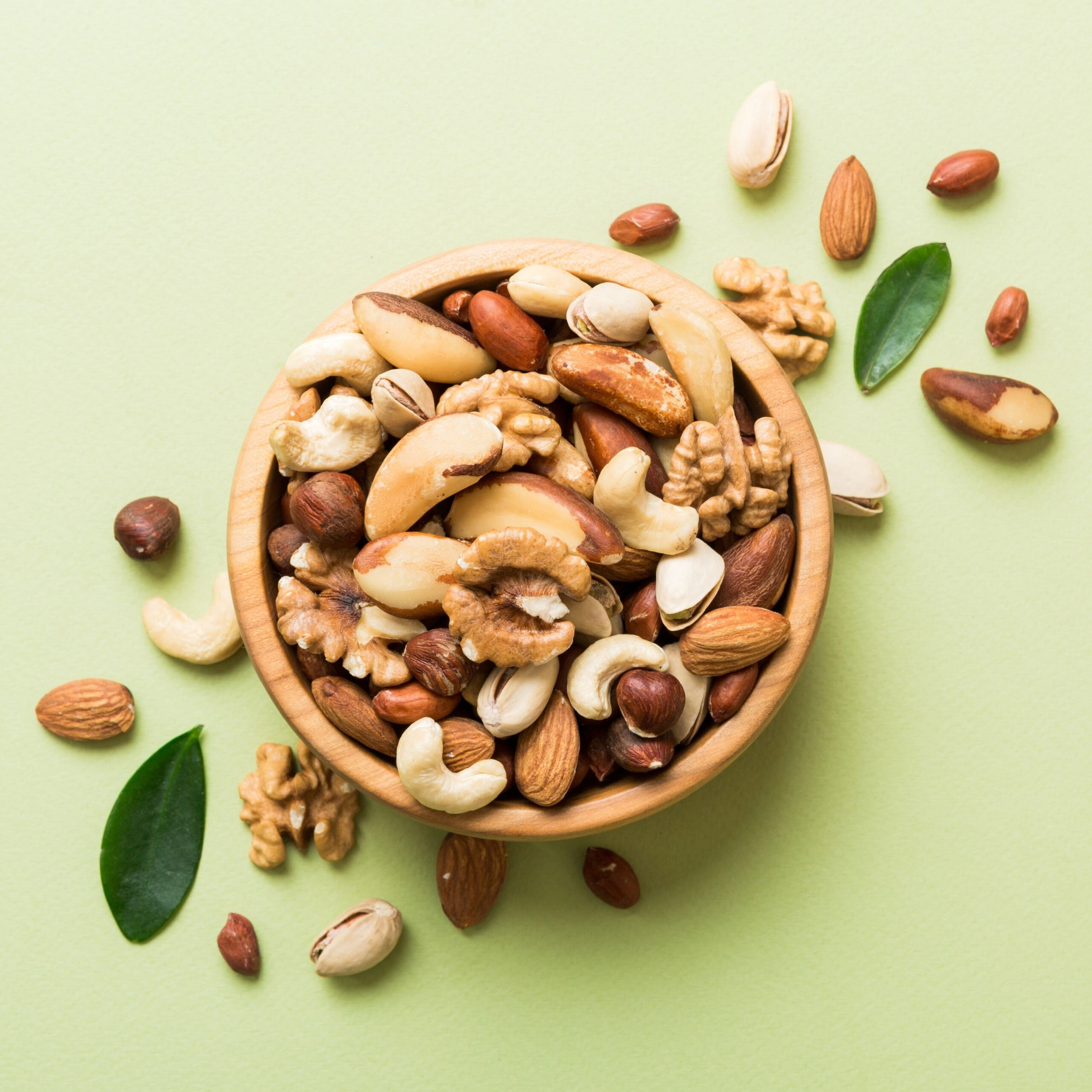
Nuts
Packed with heart-healthy fats, fiber, and antioxidants, nuts have been consistently linked to a reduced risk of heart disease. The monounsaturated and polyunsaturated fats found in nuts aid in lowering LDL cholesterol levels and promote overall cardiovascular health. Additionally, the fiber content in nuts supports digestive health by supporting proper digestion and preventing constipation.
"Nuts are a great source of both insoluble fiber and healthy fats," Feder shares. The beneficial fats and fiber content in nuts are effective for lowering harmful cholesterol levels while boosting the beneficial ones, thereby mitigating the risk of artery blockages and enhancing cardiovascular well-being. Nonetheless, Feder cautions individuals mindful of their weight: "It is important to only have one or two handfuls of nuts due to them being very calorically dense."

Lentils
Lentils are a nutritional powerhouse and a top choice for maintaining heart and digestive health, particularly for individuals over 40. Bursting with fiber, lentils play a vital role in supporting cardiovascular wellness by helping to manage cholesterol levels, a crucial concern with advancing age. Furthermore, their rich fiber content aids in regulating digestion, promoting regularity, and alleviating digestive discomforts commonly experienced in later years.
"The high fiber content in lentils can also promote healthy digestion by supporting regular bowel movements and the growth of healthy gut bacteria. Additionally, the combination of protein and fiber in lentils can support stable blood sugar levels, which can help reduce cravings and aid in fat loss," Wen says.
Turner emphasizes the many benefits of the soluble fiber in legumes such as lentils, saying, "This soluble fiber forms a gel-like substance in the digestive tract, which binds to cholesterol and bile acids. As a result, the body excretes more cholesterol, leading to a decrease in LDL cholesterol levels."
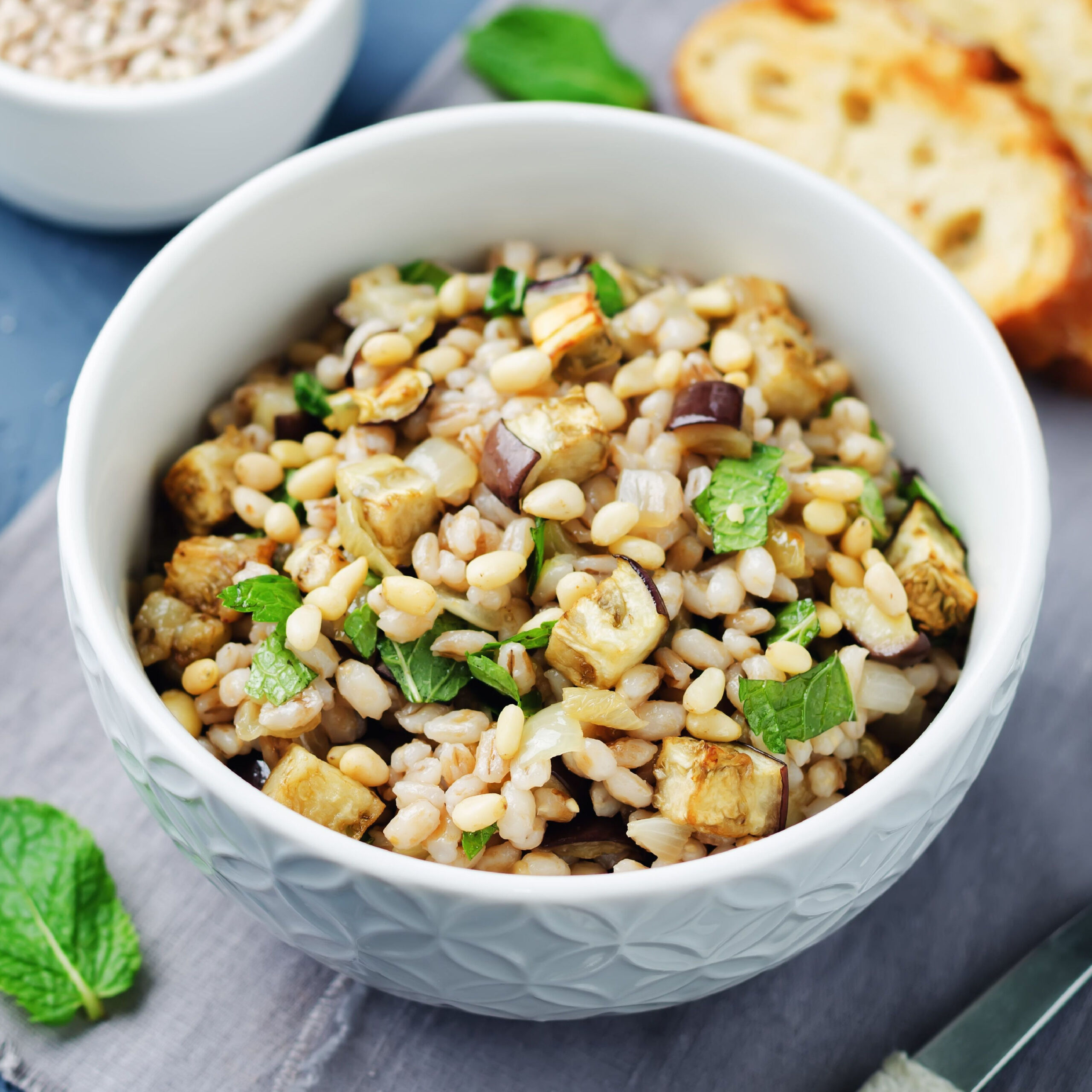
Barley
Barley stands out as a high-fiber food with significant benefits for heart and digestive health, especially for individuals over 40. Rich in both soluble and insoluble fiber, barley aids in maintaining healthy cholesterol levels, lowering the risk of heart disease. Moreover, barley's fiber content helps stabilize blood sugar levels, further supporting overall well-being.
"Barley helps to lower LDL cholesterol levels by interfering with cholesterol absorption. Its rich fiber content also promotes a feeling of fullness and aids in weight management, indirectly contributing to improved cholesterol levels and heart health," explains Turner.

Avocado
Rich in heart-healthy monounsaturated fats, avocados may contribute to lower cholesterol levels and improved cardiovascular health. Avocado's high content of vitamins, particularly vitamin K and folate, supports not just cognitive function, but also heart health.
"Avocado is one of the healthiest fats on the planet. It is very high in monounsaturated fats as well as dietary fiber. It is also a great source of B vitamins, vitamin C, vitamin E, vitamin K, folate, potassium, magnesium, and antioxidants. The healthy fats in avocado is great for supporting brain health as well as proper blood lipid levels which is essential for heart health," Feder says.
He also notes that the abundant dietary fiber in avocados plays a crucial role in supporting the gastrointestinal tract, enhancing nutrient absorption, and promoting overall health. Furthermore, the copious nutrients and antioxidants present in avocados prove beneficial in optimizing bodily functions and combating inflammation.
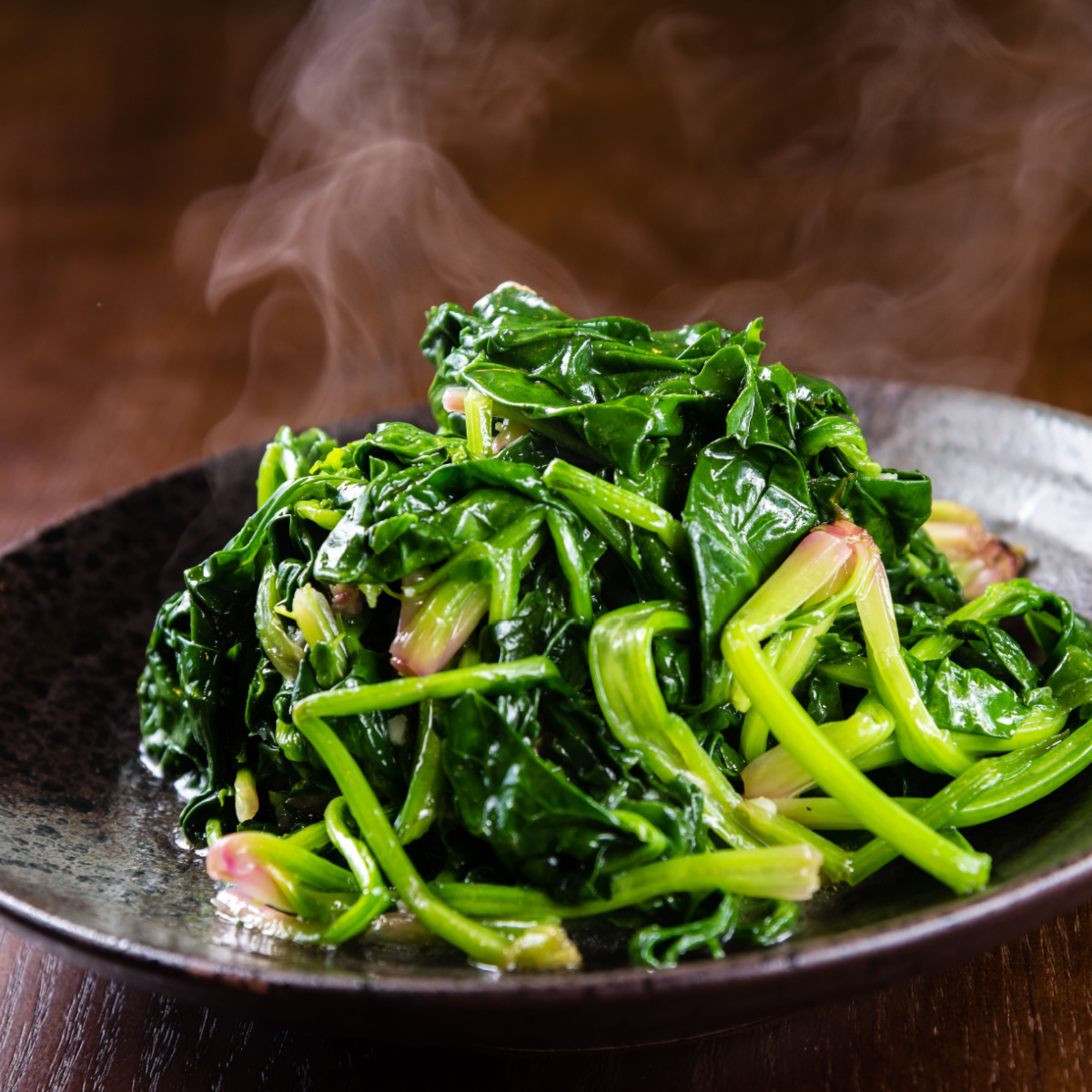
Spinach
Spinach, the vibrant leafy green beloved by many, is not just a culinary delight but also a secret weapon for maintaining heart and digestive wellness. Bursting with fiber, spinach offers a double dose of health benefits. Its soluble fiber content aids in managing cholesterol levels, a crucial aspect of heart health as we age. Meanwhile, the insoluble fiber in spinach keeps digestion running smoothly, combating common digestive issues that often arise down the line.
Feder says this green food is "loaded with fiber and other nutrients including vitamins A, C, K, folic acid, iron, and calcium. The high amount of antioxidants is great for fighting off inflammation throughout the body, including your brain, and heart. The high amount of fiber promotes healthy digestion and nutrient absorption which is also important for whole body health. Lastly, the key nutrients in spinach has been directly associated with improvements in cognition and cardiovascular health."
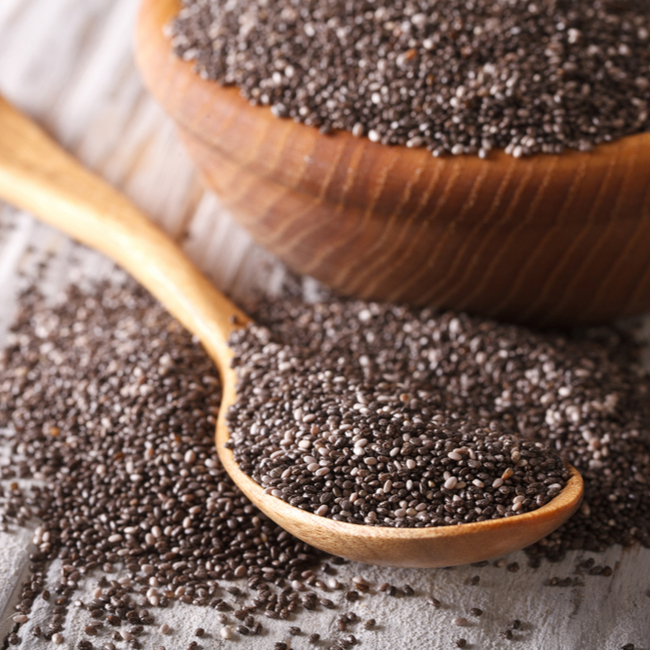
Chia Seeds
Chia seeds, small but mighty superfood, are an exceptional choice for nurturing heart and digestive health. Loaded with a blend of soluble and insoluble fiber, they offer a dual approach to wellness. The soluble fiber helps with managing cholesterol levels, while the insoluble fiber aids in digestion, easing common digestive discomforts that older individuals often experience.
"Chia seeds expand and form a gelatin type substance in the digestive tract. This is great for slowing down digestion, increasing nutrient absorption, and helping you feel full for long periods of time," Feder says.
"They are also powerful seeds that are bursting with protein, fiber, calcium, iron, and omega-3 fatty acid," Berger tells us. "A 2021 review found chia seeds help to increase high density lipoprotein (HDL), also known as good cholesterol and lower low density lipoprotein (LDL), also known as bad cholesterol."
According to Schachter, "chia seeds are one of the richest plant sources of omega-3 fatty acids, which can help reduce inflammation and promote heart health."














